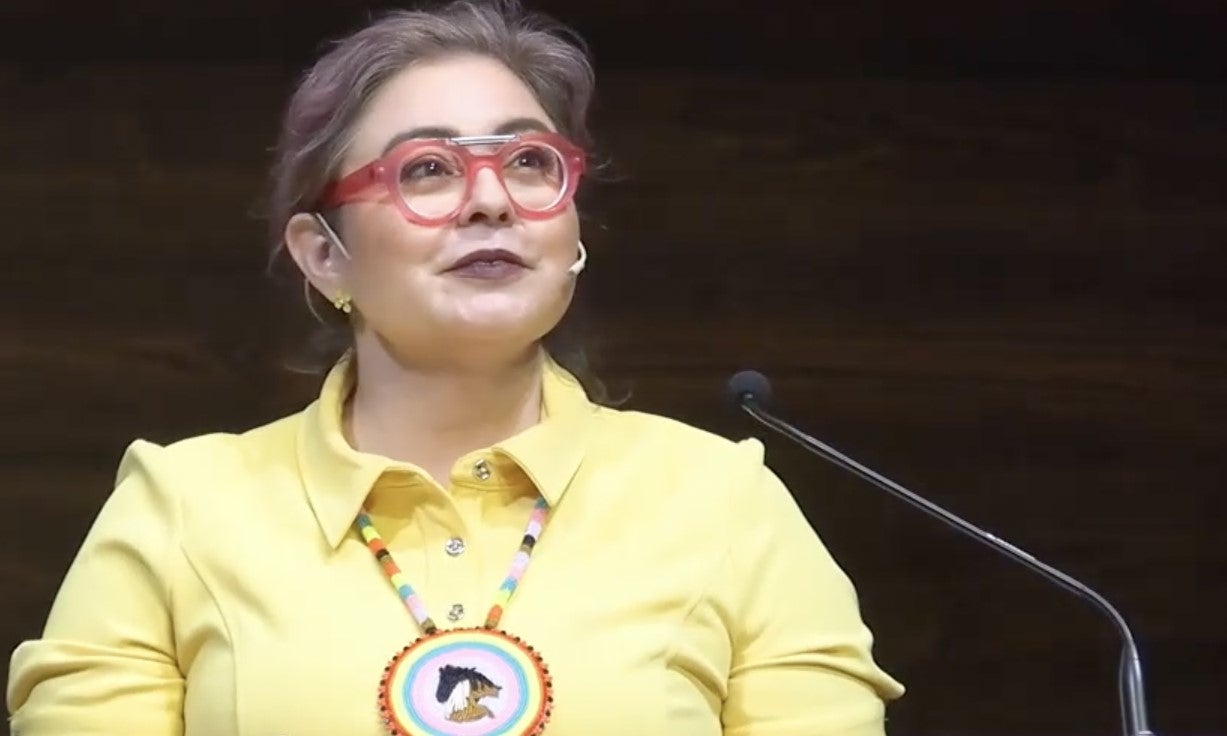
Dr. Omeasoo Wapisiw presents the keynote address to the 29th annual Tri-University Graduate History Conference, Imagining a New History: Interventions in Historical Research
“The best part of our Imagining a New History conference was the keynote address by Dr. Omeasoo Wāhpāsiw of Carleton University and the performances by Kevin McKay of Cross Lake First Nation,” agree Catherine Ramey, Megan Blair, and Vera Zoricic. Catherine, Megan, and Vera formed part of the team of student organizers for the Tri-University Graduate History program’s annual conference. The conference was held on Saturday, March 25, 2023 at the Balsillie School of International Affairs (BSIA) in the Centre for International Governance Innovation (CIGI) campus in Waterloo, Ontario.
"It was exciting see so many graduate students from the Tri-U and beyond presenting their imaginative research, and to see the stage full of Indigenous talent and humour during the keynote presentation by historian Omeasoo Wāhpāsiw and musician Kevin McKay," says Susan Roy, associate chair of graduate studies at the University of Waterloo and member on the organizing committee.
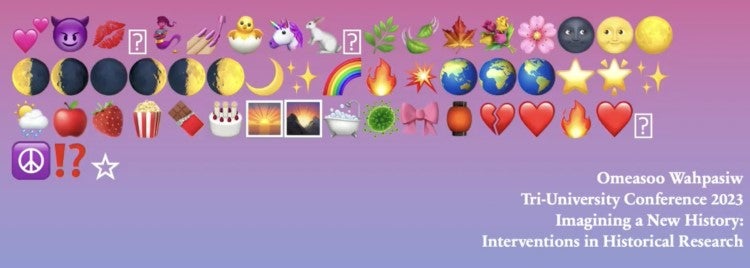
The title slide from Omeasoo Wapisiw's keynote address.
“Omeasoo focused her keynote on the graduate student experience and framed her lecture as ‘the commencement address I would have liked when I graduated,’” relays Megan. “This approach made Omeasoo’s input accessible to everyone across the diverse research interests in history represented by those in attendance.” “It wasn’t boring!” says Megan with a smile.
Everyone agrees that “Kevin McKay is an amazing fiddler and singer.” Kevin brought fiddle music to the keynote session and then covered mostly Lady Gaga songs during the reception. Covering songs is a competitive musical activity in many Indigenous communities so artists get very good at it.
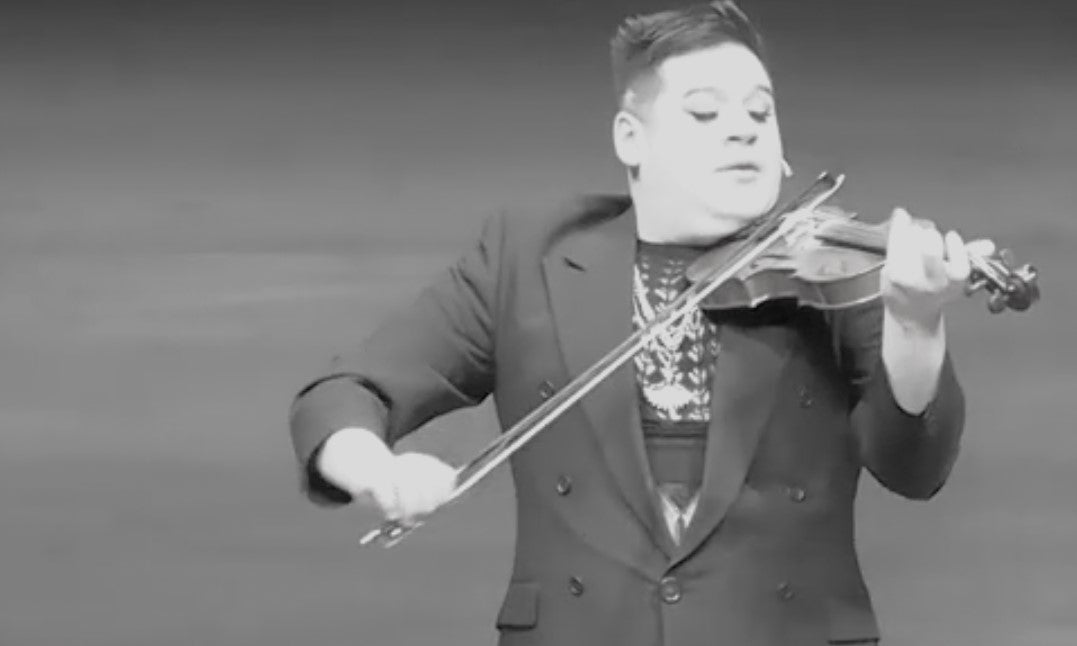
Kevin McKay playing the fiddle during the keynote session.
“Kevin brought stories about the issues faced by remote Indigenous communities in Canada. Problems like a lack of clean drinking water and poor sanitation, along with the high rates of suicide causing states of emergency in many communities were made personal by Kevin’s presence,” noted Vera.
“In history, we look at Indigenous culture and art but having Omeasoo and Kevin part of the conference, we made contemporary connections to what we read and write about,” noted Megan. “We were also made aware of our positionality, even as we are writing history,” added Vera. “Kevin’s presence made us as historians, aware that we still must be connected to the present where we are actually living, not just the past,” reflected Catherine.
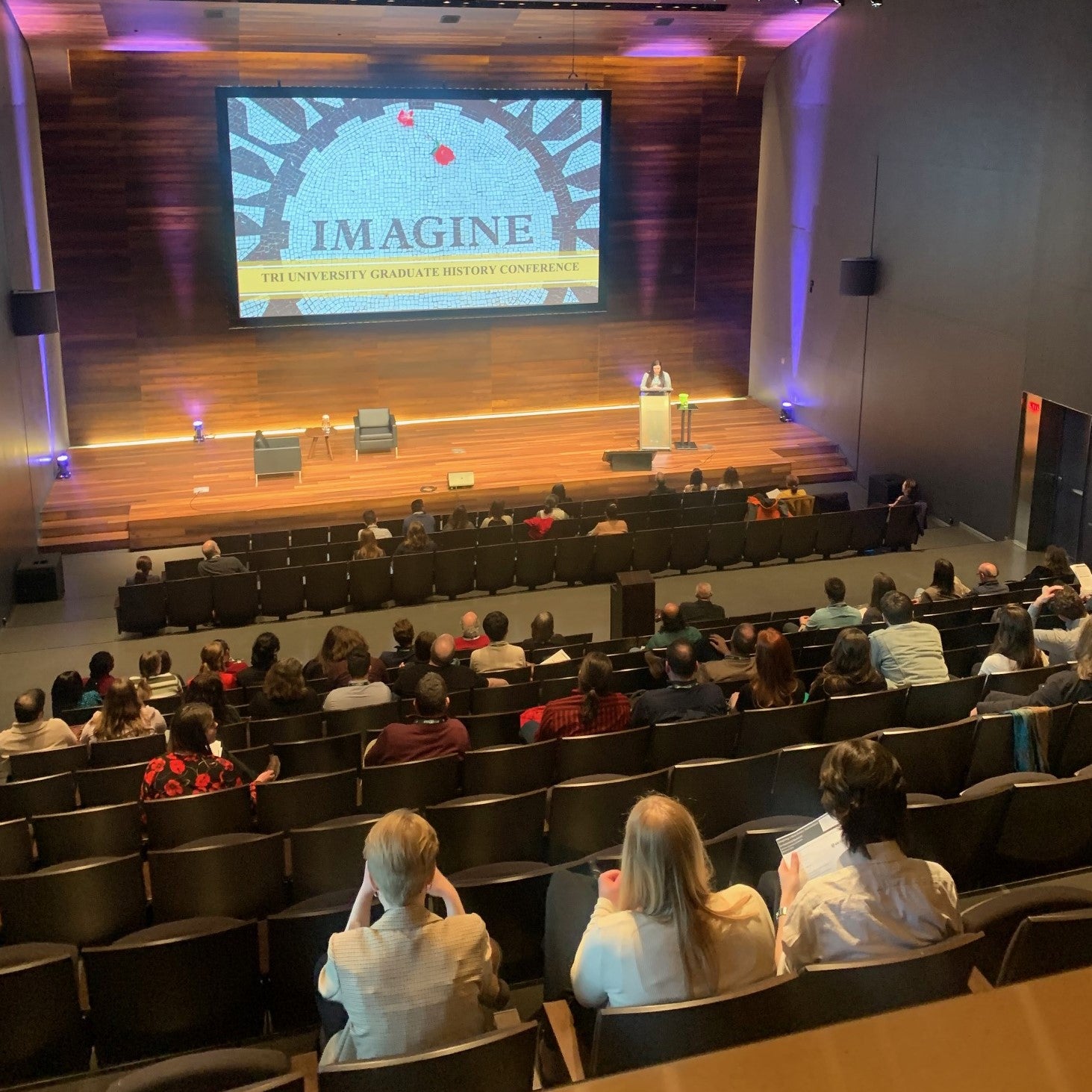
Imagining a New History: Interventions in Historical Research was largely organized by students at the University of Waterloo this year with faculty support from Susan Roy and Dan Gorman. It was wonderful to be in-person after several years of virtual conferences. For many students in the Tri-University History program, it was the first opportunity they had to meet many of their colleagues and many of the program’s faculty members in person. Over 100 people attended in person with more virtually. This included a few incoming students to the program. In addition 182 pounds of food were delivered to the Food Bank.
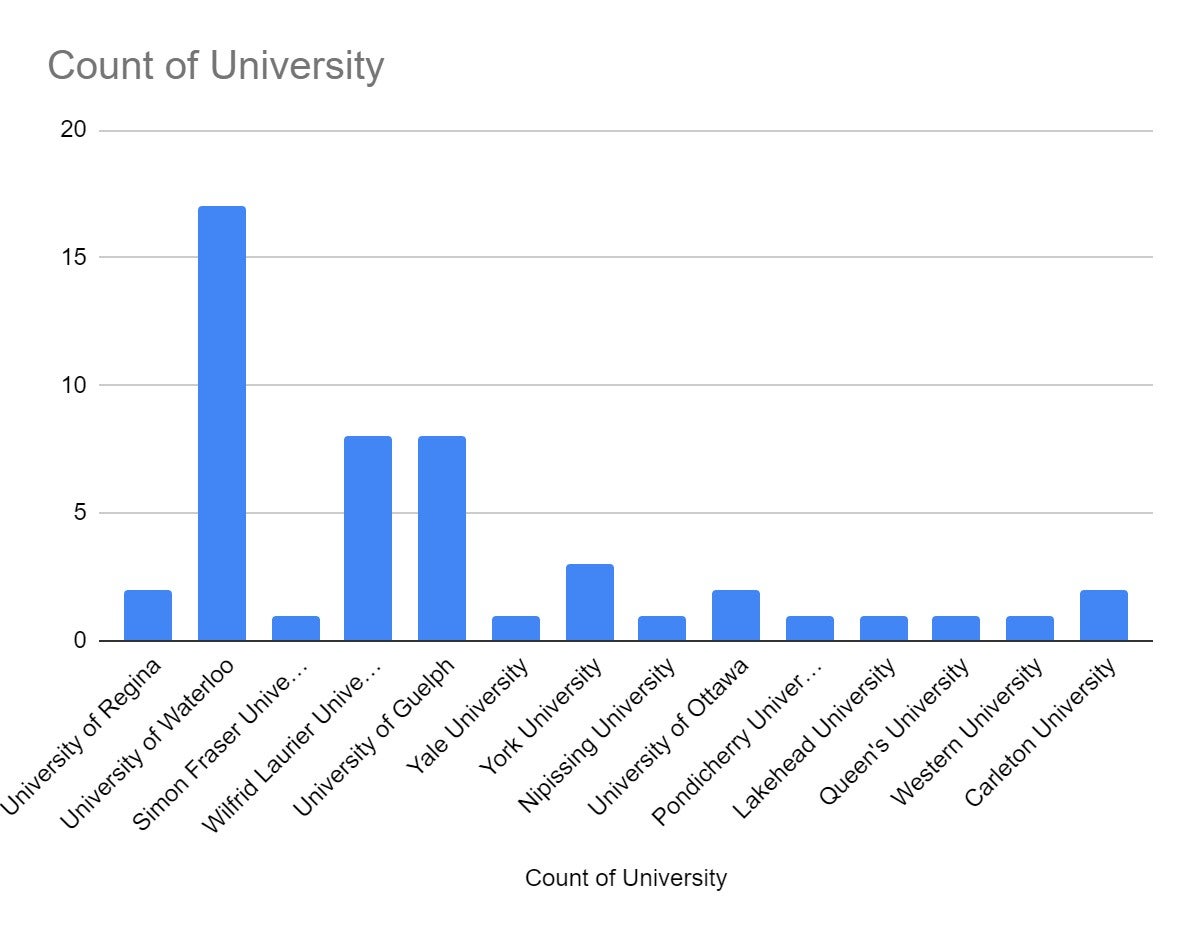
The conference attracted a diversity of presenters. While the majority were students in the Tri-U program, there were several from other universities including from as far away as Simon Fraser University in British Columbia, and Pondicherry University in India. A few undergraduate students also presented.
Next year’s conference will be organized by students and faculty from the University of Guelph. Catherine, Megan, and Vera offer the following advice to next year’s organizers. Besides having a lot of fun, the team shares the following:
- Start early!
- It’s important to have a good team. “It’s much easier to do when tasks are delegated,” notes Catherine who served as chair.
- Be prepared for a lot of administrative details like organizing the food, looking for a venue, organizing the panels, and registering participants etc.
- A hybrid option is nice for those who would participate from afar, but it is a lot of work to run. The bias of these planners is towards in-person conferences.
- While it’s a puzzle to put the panels together, be open-minded about how they go together – sometimes it’s nice to have a mix.
- Avoid rescheduling if you can! (This year’s conference was rescheduled to March 25 from March 4 due to bad weather on the 4th.)
- Have good back-up plans.
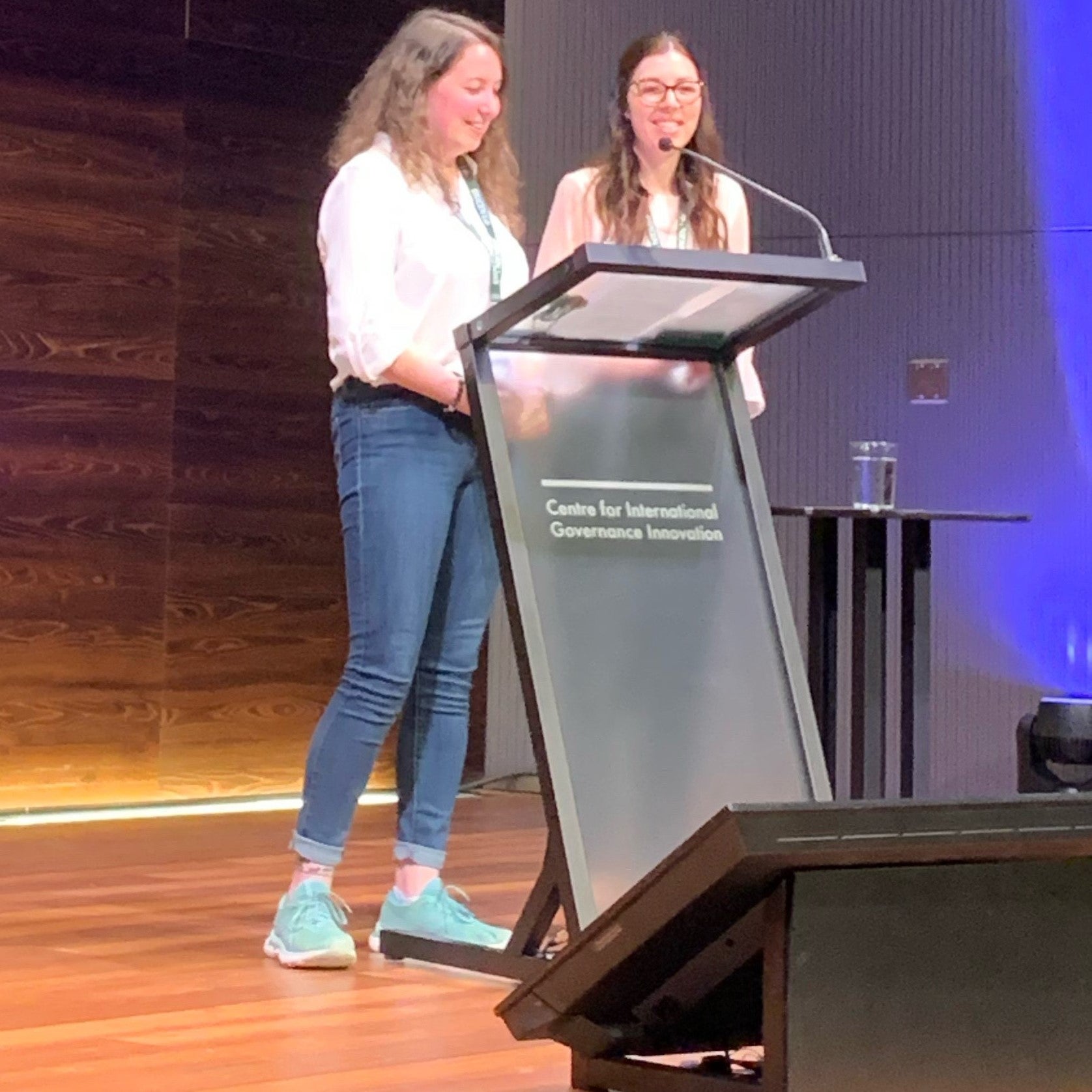
Catherine Ramey (l) and Megan Blair (r) make annoucements at the conference.
The organizing committee of students from the University of Waterloo included Catherine Ramey (chair), Tolulope Akande, Megan Blair, Amanda Hooper, Erin Kurian, and Vera Zoricic. Susan Roy and Dan Gorman served as faculty organizers/advisors.